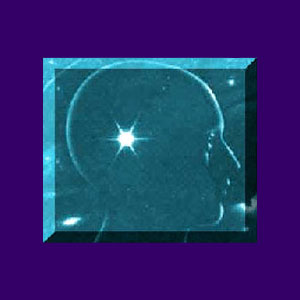
Tension headaches are the most common type of all head pain syndromes and are known to recur regularly once a pattern of symptoms has been established. These headaches are often thought to be a typical response to physical tension and stress, but can also be the direct product of conscious, repressed or suppressed emotional stress. This stress can be known, based upon emotional issues existing in the present, or hidden, dealing with repressed emotions from the past or worries for the future.
This painful condition is the most common of all psychosomatic pain syndromes affecting the human population almost universally. I have suffered countless tension-type headaches in my life and still do on occasion. They seem to be unavoidable, at least sometimes.
Let’s discuss the lesser known reasons why tension head pain occurs and how it can be both prevented and stopped forever.
Causes of Tension Head Pain
There is ongoing debate about the exact causes and processes involved in the creation of tension-type headaches. Some doctors feel that muscular tension in the neck and face are the primary cause, although they are not sure why those neck and face muscles are tight to begin with.
Other doctors blame teeth grinding and jaw clenching, which are certainly behaviors typical of many psychosomatic syndromes. Still other doctors place the causation of these head pain conditions on regional oxygen deprivation, creating ischemia-related pain.
The one thing that seems to be a common idea among these many theories is that the emotional mind almost certainly has something to do with headache generation. In our research, we have found this to be a universal truth of all tension style head pain.
Symptoms of Tension Headache
Besides the obvious unilateral or bilateral head pain, there are other distinguishing factors common to many tension-type headache conditions:
Obvious muscle tension in the jaw, tongue, neck or face is a virtually universal finding, especially once the headache is firmly established. Some physicians have linked recurrent tension head pain syndromes to flare-ups of temporomandibular joint pain.
Obvious conscious emotional stress can cause anyone to suffer a blinding headache. Problems in the now can bring on a headache without warning.
Having a history of other chronic psychosomatic pain syndromes increases the risks of suffering regular severe headaches exponentially.
Tightness or pressure in the skull is an inherent part of the tension-type head pain complex.
Pain directly behind the eyes or ears often describes location specific symptoms in many patients.
Curative Suggestions for Tension Headache Sufferers
It is completely normal to get an occasional headache, especially when you are stressed out. This is the most commonly expressed type of psychosomatic pain in our species. I do not know anyone who has never experienced a headache at one time or another.
For some patients, however, chronic tension-type headaches can ruin the quality of life and drastically reduce their overall functionality. These are the patients who have the most to gain by exploring an alternative path to treatment, such as knowledge therapy. This holistic approach can help patients discover why they have such severe and frequent headaches. For some of these lucky patients, this pain syndrome can be relatively easy to cure without major medical treatments once the true nature of the symptomatic imperative has been established and accepted.
The hardest part is uncovering and acknowledging the emotional issues which are causing the physical pain. Once you can accomplish this, the headaches might become little more than a very occasional transient burden.
Back Pain > Psychologically Induced Pain Syndromes > Tension Headache





